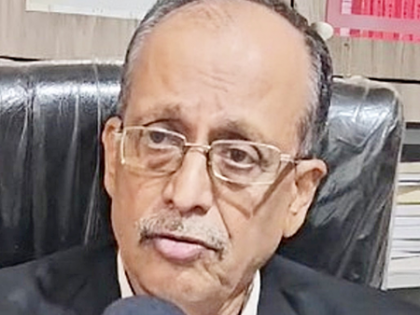‘Very shocking’: Legal experts react as Bombay HC acquits 12 in 2006 Mumbai train blasts case
By IANS | Updated: July 21, 2025 16:54 IST2025-07-21T16:49:39+5:302025-07-21T16:54:23+5:30
Mumbai, July 21 In a development that has stunned victims' families, legal experts, and citizens alike, the Bombay ...

‘Very shocking’: Legal experts react as Bombay HC acquits 12 in 2006 Mumbai train blasts case
Mumbai, July 21 In a development that has stunned victims' families, legal experts, and citizens alike, the Bombay High Court acquitted all 12 men convicted by a special court in the 2006 Mumbai train bombings.
The ruling overturned death sentences for five of the accused and life imprisonment for the remaining seven, triggering widespread debate on the integrity of the investigation and the judicial process.
Special Public Prosecutor and senior advocate Pradeep Gharat, who has represented the prosecution in multiple high-profile cases, expressed disbelief over the High Court’s decision.
"This is completely shocking," Gharat told IANS.
“When seven people are sentenced to death and six are given life imprisonment by a lower court, and then all of them are acquitted - it's not just surprising, it's staggering. But until we see the High Court’s reasoning, we can't say more. The judgment must explain why this decision was taken.”
Gharat further commented on the stark contrast between the judgments of the trial and high courts.
“This is not the first time such a thing has happened. There have been instances where even the Supreme Court has acquitted people who were earlier handed death sentences. It all boils down to the strength of evidence,” he noted.
Raising a critical point about the police’s handling of the investigation, Gharat said, “One of the reasons behind this verdict could be lapses in the police investigation. If evidence is not presented properly or if the prosecution fails to convince the court, such outcomes are inevitable. The trial court benefits from live testimonies and can assess the demeanour and credibility of witnesses firsthand. The High Court does not have that advantage.”
On being asked about the next steps, Gharat emphasised urgency.
“The next strategy should be to move to the Supreme Court immediately - today or tomorrow - to seek a stay on the High Court’s order. The gravity of the offence demands swift and decisive legal action. The prosecution can submit an undertaking that once the judgment copy is received, they will respond on the merits. But for now, preventing the release of these individuals is critical,” he said.
He also expressed his personal disappointment.
“There was a sense of closure earlier, that justice had been served, that the police and the government had done their job. But now, with the High Court overturning everything, it’s a huge jolt.”
Echoing similar concerns, Special Public Prosecutor Ujjwal Nikam, who has handled several terror-related cases in the past, called the acquittals a “serious matter.”
“The acquittal of all accused in such a grave terror attack is extremely concerning. The government will have to appeal to the Supreme Court. The loss of 189 innocent lives cannot be brushed aside. If the High Court lost faith in the evidence presented, it raises critical questions about how the case was built and prosecuted,” Nikam said.
The 2006 Mumbai train bombings claimed 189 lives and injured over 800 commuters. Seven coordinated explosions ripped through first-class compartments of packed local trains in just 11 minutes during evening rush hour, using pressure cookers filled with a deadly mix of RDX and ammonium nitrate.
Despite the magnitude of the attack, the case took a dramatic turn after the Bombay High Court’s decision on Monday. The verdict, delivered by a division bench comprising Justice Anil Kilor and Justice S. Chandak, acquitted the 12 men previously convicted by the special MCOCA court in 2015.
The acquittal has also dealt a severe blow to the Anti-Terrorism Squad (ATS), which had filed the original charge sheet under stringent laws, including the Maharashtra Control of Organised Crime Act (MCOCA) and the Unlawful Activities (Prevention) Act (UAPA). The ATS had accused the 13 men — 12 of whom were convicted by the trial court — of being part of a conspiracy orchestrated by Pakistan-backed terror operatives.
Of the original 13 accused, one was acquitted by the special court in 2015. The remaining 12, whose convictions were overturned Monday, had been in prison for nearly two decades. The High Court has now ordered their immediate release.
The shockwaves from the High Court verdict are not just being felt in legal and political circles but also among families of victims who have waited for nearly 20 years for justice.
Disclaimer: This post has been auto-published from an agency feed without any modifications to the text and has not been reviewed by an editor
Open in app